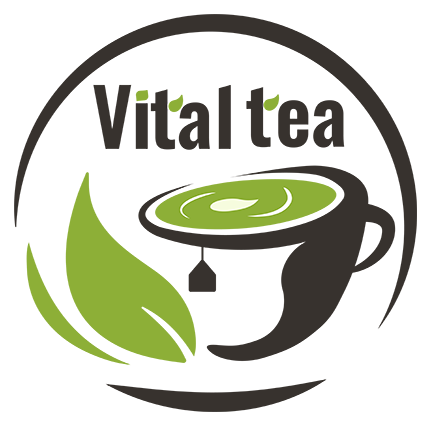In a world brimming with fleeting health and wellness trends, lung detox teas have secured a lasting spot. Promising to cleanse, heal, and bolster respiratory function, these herbal concoctions often command high prices. But what does the science actually say? Can a simple tea truly "detoxify" your lungs?
Let's dive into the evidence behind formulas like Vital Tea's Lung Detox Tea to distinguish scientific fact from marketing hype.

Lung Detox Tea from Vital Tea
Understanding the Lungs' Natural Cleansing Power
Our lungs are equipped with incredible self-cleaning mechanisms.
- Cilia: Tiny, hair-like structures constantly sweep mucus and trapped particles upward and out.
- Immune Cells: Specialized cells patrol the airways, neutralizing invaders.
These natural processes are vital for maintaining respiratory health. It's crucial to understand that no tea can replace these inherent systems. The real question is: can specific herbs support them? Could certain plant compounds help reduce inflammation, combat oxidative stress, or modulate immune responses beneficially?
Deep Dive: Key Ingredients in Lung Detox Teas
Examining Vital Tea's Lung Detox Tea formula reveals several ingredients with scientific backing for respiratory benefits. Let's focus on those with the most compelling evidence:
Thyme: Nature's Respiratory Ally
Thyme is rich in essential oils, notably thymol, which shows genuine promise for lung health.
- Research Insight: Studies on mouse models (acute pneumonitis) found thyme essential oil reduced inflammatory airway hyperresponsiveness [1]. The effect seems linked to modulating inflammation directly within the airways.
- Tea vs. Inhalation: While research often uses inhaled oils, drinking thyme tea might still allow beneficial compounds to be absorbed and reach lung tissue via circulation.
 Thyme
Thyme
Monk Fruit: More Than Just Sweetness
Monk fruit contains mogrosides, compounds offering more than just zero-calorie sweetness.
- Anti-Fibrotic Properties: Mogroside IIIE significantly reduced pulmonary fibrosis development in mouse models by decreasing collagen deposition [3].
- Anti-Inflammatory Action: Mogroside V effectively reduced lung inflammation in asthmatic mice models by inhibiting inflammatory cytokines and oxidative stress [6]].
These findings suggest monk fruit adds meaningful benefits beyond simple sweetening.

Monk fruit
Astragalus: The Immune & Respiratory Supporter
Astragalus membranaceus stands out with robust evidence for lung benefits.
- Broad Benefits: Research highlights Astragalus's immune-regulating and anti-inflammatory properties relevant to respiratory conditions [2].
- Synergistic Protection: Combined with other herbs, Astragalus demonstrated protective effects against acute lung injury in rats, reducing tissue damage and inflammation [5].
Astragalus's multi-mechanism action makes it particularly interesting for comprehensive respiratory support.

Astragalus
Deconstructing the "Detox" Myth
The term "detox" often implies toxin removal. However, this needs clarification regarding the lungs.
- Primary Detox Organs: Your liver and kidneys are the body's main detoxification powerhouses.
- Lung Support, Not Detox: While herbs might support lung health via anti-inflammatory or antioxidant effects, they don't "detoxify" lung tissue in the literal sense.
It's more accurate to say these herbs support healthy lung function rather than "detoxify."
The Synergy Factor: Power in Combination
Herbal formulas like lung detox teas might offer benefits through synergy – the combined effect of multiple herbs.
- Astragalus Example: Research shows enhanced lung protection when Astragalus is combined with other herbs [5].
- Licorice Combo: Licorice, when mixed with other herbs, showed significant effects against neutrophilic lung inflammation in a COPD model [4].
The Verdict: Helpful Support, Not a Magic Bullet
Based on the evidence:
- Promising Ingredients: Certain ingredients in formulas like Vital Tea's Lung Detox Tea (especially monk fruit, Astragalus, and licorice) show scientific promise for supporting respiratory health.
- Mechanisms: They likely work by reducing inflammation, fighting oxidative stress, and modulating immune responses.
- Limitations: Lab results may not perfectly translate to tea infusions, and concentrations vary.
Are lung detox teas worthwhile?
- For healthy individuals seeking gentle support: Likely harmless and might offer modest benefits.
- For those with respiratory conditions: Use as a complement to, not a replacement for, medical treatment.
Conclusion: Seeing Beyond the Hype
Scientific evidence suggests certain herbs in lung detox teas can indeed support respiratory health, primarily through anti-inflammatory, antioxidant, and immunomodulatory pathways, rather than literal "detoxification."
Think of these teas as potential supplements to a healthy lifestyle:
- Breathe clean air.
- Exercise regularly.
- Avoid respiratory irritants (like smoke).
Even the ritual of drinking tea – inhaling warm steam, breathing deeply – can offer indirect benefits. As environmental challenges persist, interest in natural lung support will grow, potentially leading science to uncover more about traditional remedies.
References
[1] Liu, L., Zhao, Y., Huang, Z., Long, Z., Qin, H., Lin, H., Zhou, S., Kong, L., Ma, J., & Li, Z. (2024). Effects of Lycium barbarum polysaccharides supplemented to high soybean meal diet on immunity and hepatic health of spotted sea bass Lateolabrax maculatus. Frontiers in immunology, 15, 1333469. https://doi.org/10.3389/fimmu.2024.1333469
[2] Sanghavi, A., Shettigar, L., Chopra, A., Shah, A., Lobo, R., Shenoy, P. A., Gadag, S., Nayak, U. Y., Shravya S, M., Kamath, S. U., & Nayak, P. P. (2024). Efficacy of Lycium barbarum (Goji berry) mouthwash for managing periodontitis: a randomized clinical trial. F1000Research, 12, 302. https://doi.org/10.12688/f1000research.129891.3
[3] Bucheli, P., Vidal, K., Shen, L., Gu, Z., Zhang, C., Miller, L. E., & Wang, J. (2011). Goji berry effects on macular characteristics and plasma antioxidant levels. Optometry and vision science : official publication of the American Academy of Optometry, 88(2), 257–262. https://doi.org/10.1097/OPX.0b013e318205a18f
[4] Sanghavi, A.D., Shettigar, L.S., Chopra, A., Shah, A., Lobo, R.R., Shenoy, P.A., Gadag, S., Nayak, U.Y., Mangalore, S.S., Kamath, S.U., & Nayak, P.P. (2023). Lycium barbarum (Goji berry) mouthwash is a viable alternative to 0.2% chlorhexidine gluconate for managing chronic periodontitis: a randomized clinical trial. F1000Research.
[5] Lakshmanan, Y., Wong, F. S. Y., So, K. F., & Chan, H. H. (2023). Potential role of Lycium barbarum polysaccharides in glaucoma management: evidence from preclinical in vivo studies. Neural regeneration research, 18(12), 2623–2632. https://doi.org/10.4103/1673-5374.355977
[6]] Lakshmanan, Y., Wong, F. S. Y., So, K. F., & Chan, H. H. (2023). Potential role of Lycium barbarum polysaccharides in glaucoma management: evidence from preclinical in vivo studies. Neural regeneration research, 18(12), 2623–2632. https://doi.org/10.4103/1673-5374.355977
